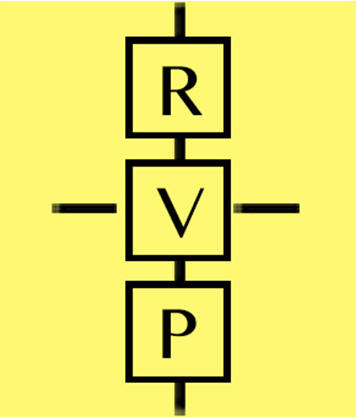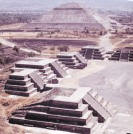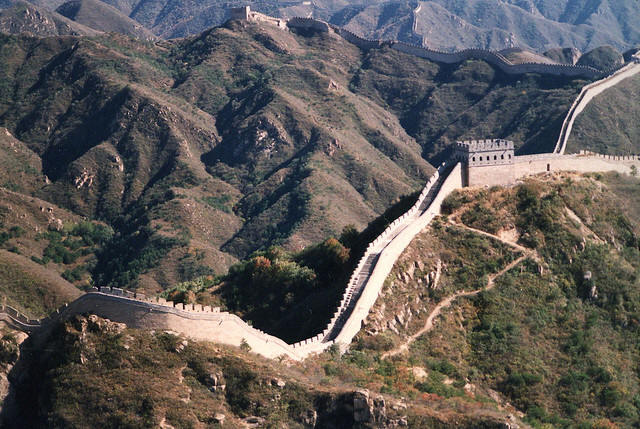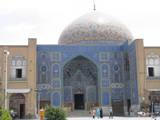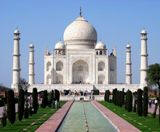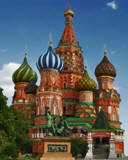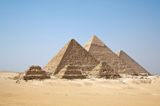|
AN INVITATION
THE ANNUAL SEMINAR
Cultural Identity, Pluralism and Globalization
September 11 to November 10, 2000
Washington D.C.
The Challenge
Ten years ago there was great and justified euphoria as,
in one dramatic semester, the oppressive, over
centralized regimes of Eastern Europe were swept away.
This promised, and indeed reflected, a new birth of
human freedom.
At first, in the
liberal manner, this was thought to require only new
constitutions in order to establish formal, uniform and
universal borders to frame the new exercise of freedom.
While necessary, these did not take up the reality of
freedom itself.
Soon the existential character of freedom began to
emerge. No longer captive to earlier ideologies,
attention began to focus not only externally on the
objects between which one chooses, but internally on the
personal exercise of choice as the responsibility one
exercises in shaping one’s life. This was a matter, not
only of isolated decisions, but of consistent
self-affirmation in patterns of values and virtues by
which one defines one’s personal identity.
Moreover, seen not only individually, but socially, this
personal configuration defines not only the individual,
but the society made up of interrelated persons. This
constitutes a culture in the sense of the human
environment in which young persons can develop and be
formed or "cultivated." Finally, passed on (or tradita)
and shaped over time, it constitutes a cultural
tradition as the cumulative freedom of a people.
Cultural identity is then the freedom of a people writ
large; it is the purchase families have on their ability
to raise their children in a humane manner as personally
reputable and socially responsible. More precious than
life itself, it is both the fruit of the responsible
exercise freedom and the access thereto for the future —
it has ever been so.
Today, the truly human challenge and opportunity is
defined and determined in terms of a new experience of
such freedom. The opportunity is to break beyond the
conception of life imposed by modern, economic
ideologies in which man is either a lonely warrior
preying for profit, or a small part enslaved to a vast
machine grinding out the spoils of class conflict.
Beyond this, it is now appreciated that values are
important, that these are shaped by and for a social
life, and that they can render this harmonious inasmuch
as they are conducive to the material and spiritual
realization of the people.
The present opportunity is the ability to appreciate
that the horizons of this life are not only my own, but
extend to other cultural traditions with other
identities; that together we can enrich not only our own
lives, but those of our whole Society; and that this can
constitute a new level of human comity. The opportunity
for this is still further expanded as people cross
borders to enhance the cultural diversity of their new
communities. Finally, as informational tools proliferate
and intensify we live increasingly not only locally, but
with peoples everywhere and their multiple ways of
realizing human life.
In principle this should constitute a great leap forward
in the life of humankind, enabling us to improve the
natural environment, to order economic competition, and
to achieve political cooperation and peace.
In practice, however, these opportunities are proving to
be conditioned upon the resolution of the multiple
challenges they entail. For there are many and
terrifying signs of human closure from others, and even
of terrifying aggression against them. Domestically,
resources of openness and concern for the disadvantaged,
cultural minorities or immigrants from other
civilizations seem to be dwindling. Instead, one finds a
range of rejection. These begin with directing minority
families of their language and the access this provides
to their cultural values, so that they are molded
according to the majority. This extends to more evident
hardness of heart and social rejection, which in times
and places degenerates into violent attacks and even
genocide.
Internationally, people look forward to the promise of a
global unity to enable all to share in an ever greater
cumulative prosperity. But increasingly this is being
found by the less prosperous to be a context not only of
economic exploitation and cultural impoverishment.
Colonialism is perceived as being supplanted by an even
more oppressive economic and cultural imperialism which
condemns peoples to a future of poverty and its
accompanying social unrest. Indeed, this reaches even to
the destruction of the cultural traditions which are a
people’s proper hold on a sense of human decency. Like
distant thunder, the threat of Samuel Huntington’s clash
of civilizations rolls closer and looms more menacingly.
In this situation we are challenged to respond to the
new opportunities for the cultural emergence of peoples
by which their identity can be physically assured and
aesthetically enhanced, personally and socially,
domestically and globally. We are challenged to enable
this sense of cultural identity to prosper relationally
in a multi-cultural context so that diversity and
pluralism become strengths rather than weaknesses, and
an endowment of cooperation rather than an incitement to
conflict. Finally, we are challenged to enable all
persons and peoples to benefit and grow in the new
global context so that mega-conflicts can be avoided and
a harvest of human progress enabled.
The search then is for a future in which:
(a) cultural
identities are
appreciated not as arbitrary or superficial, but as the
essence of human freedom, its formation and its
exercise;
(b) cultural
pluralism is
not a zero sum struggle in which everyone and everything
must be compromised, but a relational context in which
each can be inspired by all to go more deeply into his
or her own culture and draw out creatively new resources
for new times; and
(c) globalization at
the cultural level is a force not to suppress, but to
open and enrich the ability of all peoples to cooperate
in convergent pilgrimages — each along its own path and
according to its own culture — but all directed towards
the common human fulfillment in a process that ascends
beyond limited horizons to transcendent promise.
The Response
Such a search cannot be carried out by one person, but
some progress might be made by a multidisciplinary and
multicultural team uniting the broad resources of the
human community.
For this work there are significant and promising
resources. The humanities (history and literature) can
uncover the values of the various cultures. The social
sciences (psychology, sociology and economics) can
contribute understanding of the structures of the world
in which we live. Above all, it will be necessary to
think together philosophically in order to understand
the way in which faith inspires reason and reason
articulates faith that human freedom is open rather than
closed, and self-assertion consists in reaching out to
others in the solidarity and subsidiarity in which civil
society consists.
For this a seminar is projected with the following
characteristics:
-
Size: restricted
to under 20 scholars, in order to facilitate
intensive interchange around a single table;
-
Interdisciplinary: in order to draw upon the
contemporary capabilities of the various humanities
and sciences and to penetrate deeply into the
philosophical roots and religious meaning of
cultures;
-
Inter-cultural: to
benefit from the experiences and commitments of the
various ethnic communities from all parts of the
world, to discover their particular problems in our
day, and especially to envisage new and creative
responses;
-
Focused: a
single integrating theme, in order to encourage a
convergence of insights; Duration: 10
weeks, in order to allow the issues to mature, the
participants to establish a growing degree of mutual
comprehension, and new insight to emerge;
-
Intensive: analyzing
in detail the papers planned in common and written
by each of the participants during the seminar; and
-
Publication: the resulting volumes,
consisting of chapters written by the individual
seminar participants, intensively discussed in the
seminar and then redrafted, will reflect concretely
the work of the seminar and share it with those
working in the various cultural communities in
facing the problems of contemporary life.
-
The
Organization
-
Sponsor: The
Council for Research in Values and Philosophy, and
The Catholic University of America.
-
Participants in each seminar: 10
scholars from the various continents, with an equal
number of professors from various disciplines in the
universities and institutes of the Washington area.
The visiting scholars from other countries will be
welcome to join in seminars and courses at CUA,
where they will be designated Visiting Research
Professors. They will have the use of the research
facilities of the Library of Congress and of the
Universities and Institutes of the Washington area.
Thus, the period of the seminar should constitute
effectively a hard working mini-sabbatical.
-
Schedule: The
seminar will meet on Tuesdays 10.00 a.m. - 12.00
noon for discussion by the visiting scholars of key
contemporary texts related to the evolution of the
theme of the seminar; and on Fridays, 3.00-5.00 p.m.
for presentation by the participants of the drafts
of their chapters as a basis for intensive critical
and exploratory discussion by the group.
-
How to
Apply: By
a letter of application before May 31st, together
with a curriculum vitae and bibliography, providing
details of the importance of the seminar to the
applicants overall work and the achievement of his
or her specific goals.
|

